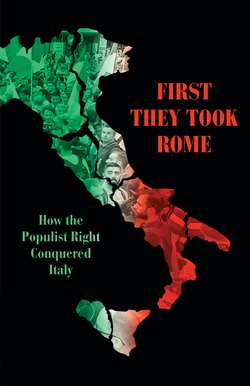Читать книгу First They Took Rome - David Broder - Страница 8
На сайте Литреса книга снята с продажи.
Оглавление2
‘Say Something Left-wing!’
The weakened ties between voters, parties, and institutions aren’t just an Italian phenomenon. Political scientists such as Peter Mair have spoken of the historic decline of mass parties across the West in recent decades.1 Arising around the turn of the twentieth century, these parties based themselves on local associational activity and an engaged community of militants, in contrast to the elite parliamentary factions more typical of the nineteenth century. Yet their ‘dense’ democratic structures, bound to the day-to-day activism of their cadres and mass membership, have increasingly given way to technocratic ‘cartel parties’, which base their power on their control of institutional resources and professionalised marketing operations. This has driven the process known as Pasokification, in which parties which allow their social roots to wither over decades then fall victim to abrupt electoral wipeouts. The phenomenon is named after Greece’s PASOK, whose role in a series of austerity and grand-coalition governments saw its support collapse from 44 per cent in 2009 to under 5 per cent in 2015; in the crisis period its malaise has also spread to historic parties like France’s Parti Socialiste and, somewhat more gradually, Germany’s Social Democratic Party. Yet, already in the early 1990s, the fall of Italy’s First Republic provided a test run of what politics looks like when mass parties are removed from the scene.
